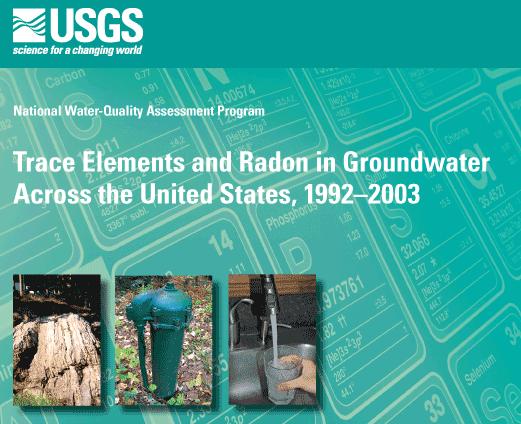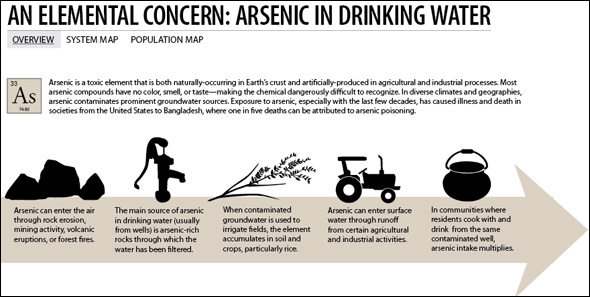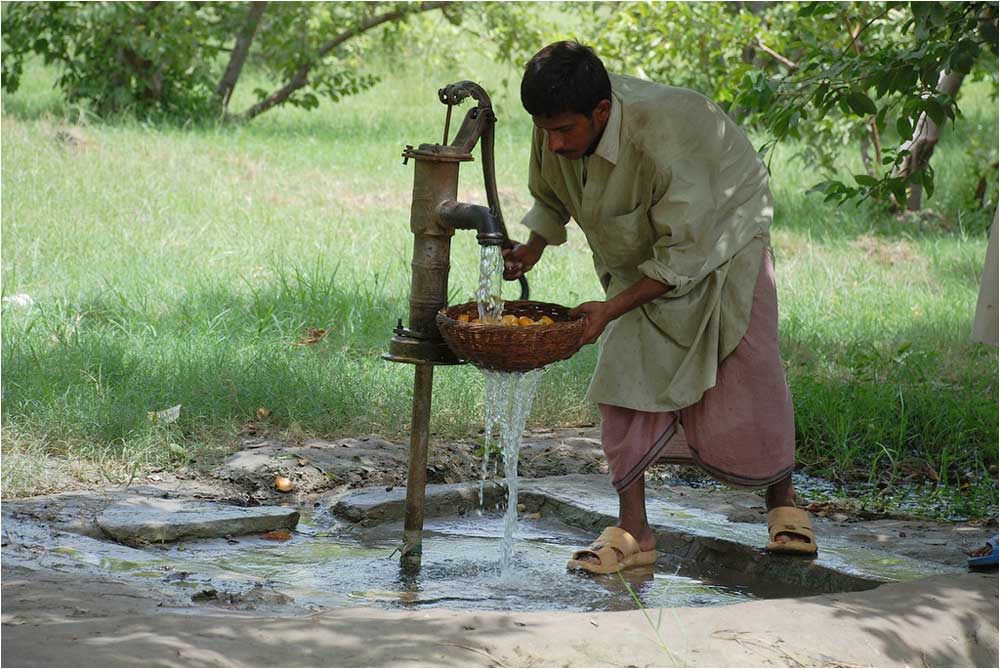Posts

The Stream, November 7: EPA Fracking Report Due in 2014
0 Comments
/
The U.S. Environmental Protection Agency will release its final…

USGS Report: Trace Elements Exceed Health Standards in 20 Percent of U.S. Water Wells
Utilities are required by law to treat water to national standards, but no such controls exist for private wells, where the risk from contaminants is greater.

The Stream, September 15: Business and the Environment
U.S. coal companies have donated $1.5 million to House Speaker…

The Stream, August 5: Food Aid for Africa
Support for farmers in Africa dried up long before Somalia's…

The Stream, July 26: Astronomers Find the Biggest Mass of Water in the Universe
Astronomers have discovered the largest and oldest reservoir…

Infographic: An Elemental Concern—Arsenic in Drinking Water
Arsenic is both naturally occurring and artificially produced, and the toxin is very dangerous since it often has no color, taste, or smell. This graphic breaks down how arsenic gets into drinking water supplies and how arsenic affects the U.S. on the state level.

The Stream, April 7: America’s Abandoned Gas and Oil Wells
Foreign Affairs analyzes why food subsidies have prevented and…

The Stream, March 17: California’s Nitrate Contamination
A new report led by the Pacific Institute reveals that nitrate…

Peter Gleick: Peak Water
Peak water is coming. In some places, peak water is here. We're never going to run out of water -- water is a renewable natural resource (mostly). But increasingly, around the world, in the U.S., and locally, we are running up against peak water limits. The concept is so important and relevant that The New York Times chose the term "peak water" as one of its 33

Peter Gleick: State Needs More Water Storage – Underfoot
The massive rains over the past month are both a blessing and a curse for California.

Study: Overpumping Draws Down the World’s Groundwater Reserves
Groundwater depletion doubled between 1960 and 2000.

Overdraft and Saltwater Intrusion Strain the Floridan Aquifer
Excessive withdrawals are forcing communities from South Carolina to Florida to look elsewhere for water.


